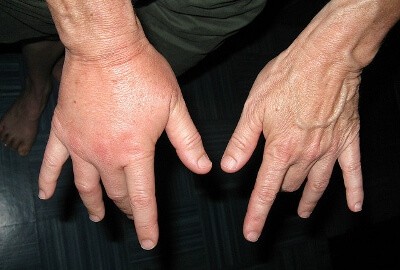Stings sting wasp swelling remedy stung top10homeremedies bees rev
Wasp stings can be a painful and discomforting experience. If you find yourself in the unfortunate situation of being stung by a wasp, it's important to know the best course of action to alleviate the pain and minimize any potential complications.
What Is the Best Thing for Wasp Stings?

When dealing with a wasp sting, it is essential to remain calm and take immediate action to prevent further discomfort. One effective remedy for wasp stings is the application of vinegar or lemon juice to the affected area. These acidic substances can neutralize the venom and provide soothing relief. Simply soak a cotton ball or a clean cloth in vinegar or lemon juice and gently dab it onto the sting site.
In addition to vinegar or lemon juice, you can also use a cold compress to alleviate pain and swelling. Applying an ice pack or a bag of frozen vegetables wrapped in a thin towel can help numb the area and reduce inflammation. Remember to avoid applying ice directly to the skin to prevent frostbite.
If the pain persists, over-the-counter pain relievers such as ibuprofen or acetaminophen can be taken according to the recommended dosage. These medications can help alleviate pain and reduce swelling.
Wasp Sting Treatments - What Works and What Doesn't

While some home remedies can provide temporary relief, it's important to understand what treatments may not be as effective when dealing with wasp stings. One commonly suggested method is the use of a meat tenderizer mixed with water to create a paste. However, there is limited scientific evidence to support the effectiveness of this approach, and it may not provide significant relief.
It is advised to refrain from using tweezers to remove the stinger. The venom sac may still be attached to the stinger, and squeezing it can release more venom into the skin, worsening the symptoms. Instead, gently scrape the area with a credit card or a blunt object to remove the stinger and venom sac.
If you experience severe allergic reactions such as difficulty breathing, chest pain, or swelling of the face and throat, it is crucial to seek immediate medical attention. These symptoms could be indicative of a severe allergic reaction, known as an anaphylactic shock, which requires prompt medical intervention.
To prevent future wasp stings, it's important to be cautious when spending time outdoors, especially in areas where wasps are commonly found. Wearing protective clothing, such as long sleeves and pants, and avoiding bright colors and strong fragrances can help reduce the likelihood of being stung. Additionally, sealing or repairing any potential entry points around your home can discourage wasps from nesting in close proximity.
Remember to stay calm and follow these tips to effectively manage and treat wasp stings. By arming yourself with the knowledge of what works and what doesn't, you can alleviate the discomfort and get back to enjoying the great outdoors.